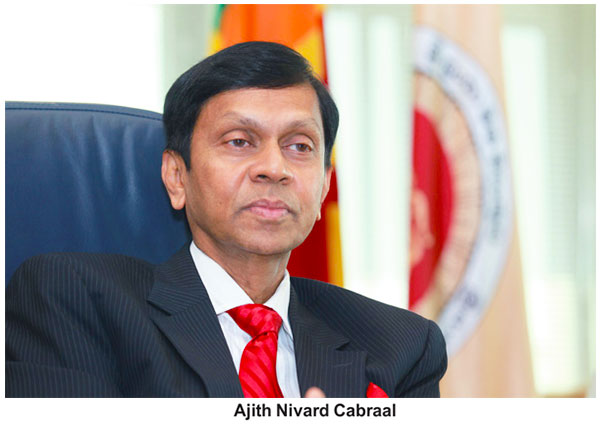News
Policy measures if GSP+ is reversed: Cabraal

ECONOMYNEXT – Any reversal of the USD 500 million European Union GSP+ trade concession for Sri Lanka could be met and handled through policy measures if such a contingency arises, Central Bank Governor Ajith Nivard Cabraal said .
Sri Lanka risks losing the EU’s Generalized Systems of Preference Plus (GSP+) trade concession from April next year if the government does not take strong measures to address human rights concerns as promised when the facility was restored in 2017.
GSP+ helped the garments industry here to earn over five billion US dollar export revenue.
“We believe that the impact of any reversal could be met with the policy measures that we would take in such an event,” Cabraal told a press briefing on October 14 when he was asked the size of the GSP+ trade concession.
“Therefore we have assured all the stakeholders that we would be able to deal with that situation in case there is any need to do so and we would not hesitate to do that.”
Sri Lanka has had problems with rule of law and freedoms of citizen with the deterioration of the independence of the public service and judiciary over several decades amid tinkering with the constitution in favour of the state and rulers, critics have said.
Sri Lanka is a European style nation-state with a legislating parliament, standing army and police but the institutions of liberty that should stand between the armed state and the people have weakened according to freedom advocates.
The European parliament adopted a resolution on June 10 calling for the repeal of Sri Lanka’s Prevention of Terrorism Act (PTA) and inviting the European Union (EU) Commission to consider temporarily withdrawing access to GSP+ if this is not done.
A five-member European Union (EU) delegation reviewed the country’s human rights situation while discussing with all the stakeholders of GSP+ benefits. But there have been renewed concerns about the country’s human rights record.
The EU is the second largest export destination for Sri Lankan products, and GSP+ has helped exporters to consolidate their position.
Sri Lanka lost the GSP+ in 2010 due to alleged human rights violations including war crimes in the final stage of the 26-year war that ended in 2009.
However, the commitment by the previous government to the international community to address human rights concerns in 2015 helped the country to regain the facility.
Small and medium sector garments and outsourced industries related to garment exporters faced closure after the GSP+ was withdrawn in 2010, but the industry rebounded later even without the trade concession.